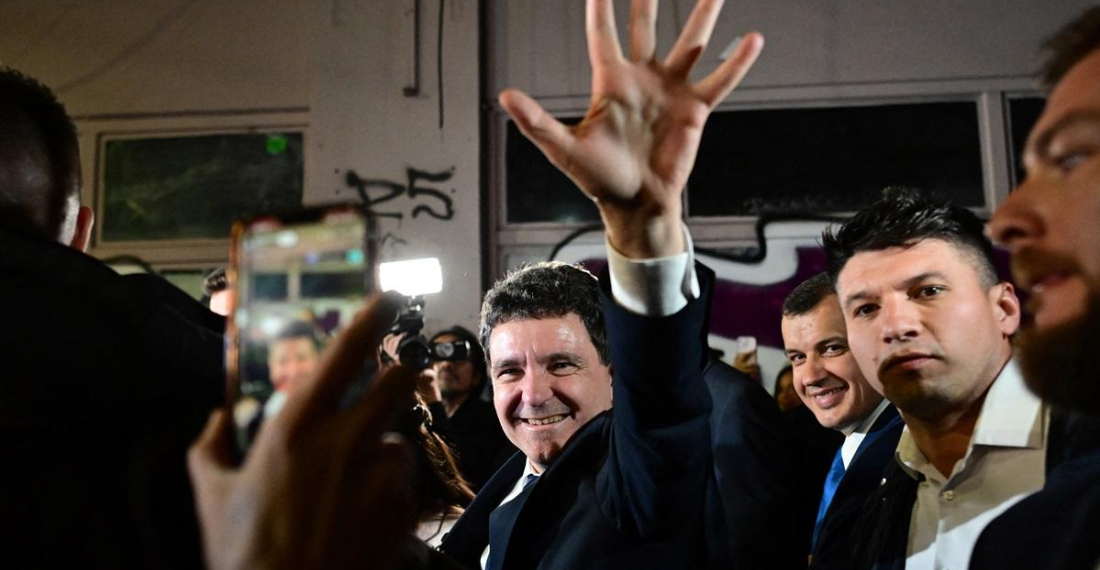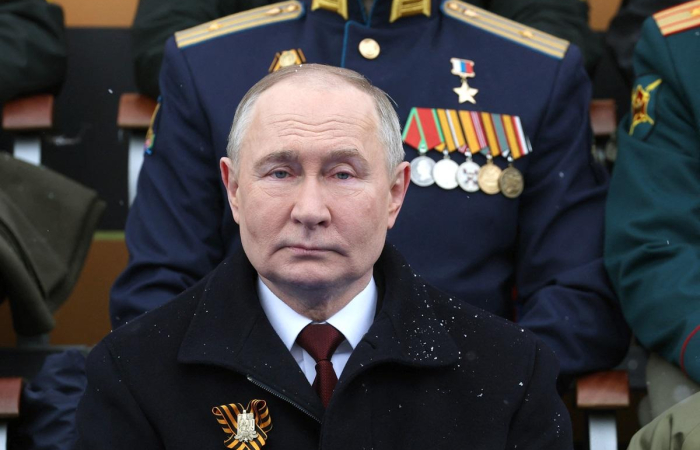Sunday (18 May) marked a key electoral date in Europe with Romania holding its presidential runoff, and Poland and Portugal voting in the first round of presidential and parliamentary elections, respectively. The results underscored the current political landscape of Europe marked by both the resilience of pro-European Union (EU) forces and the rising influence of right-wing populist movements. This surge of right-wing populism is not a new phenomenon, but part of a trend building over the past 15 years. Sunday's vote should serve as a wake-up call: Europe can no longer afford to hit the snooze button on the rise of right-wing populism.
Romania: Centrist Nicușor Dan Secures Presidency in Unexpected Turnaround
Romania’s presidential runoff was won in a remarkable comeback by independent pro-EU centrist candidate Nicușor Dan with approximately 54 per cent of the vote. He defeated right-wing populist candidate George Simion who had led in the first round of elections on the 4 May with a score of 41 per cent, double that of Nicuşor Dan. The stakes of the presidential election on Sunday were high, not just for the 19 million Romanians, but also for the European Union and NATO. Romania’s position as an important NATO country with a strong military base in Constanţa, would have been undermined with George Simion as president.
The candidate, an EU-sceptic and Trump admirer was favoured to win after he mobilised the support of many frustrated voters over the annulment of last year’s presidential election. The vote was cancelled due to alleged Russian interference that had benefitted ultranationalist, Călin Georgescu, who was barred from running in this year’s election.
Despite being barred, Georgescu offered his full support to Simion’s presidential campaign who promised to make him prime minister. Simion was sceptic of the European project, arguing in a presidential debate on 8 May that “Europe does not exist as an entity” and that the 27 states should gain more decisive power. Moreover, he argued he would veto aid to Ukraine and was against the European Union investing in military defence. His presidency in Romania would have weakened Europe’s unity benefiting Putin’s war in Ukraine.
Nicuşor Dan in the past two weeks mobilised voters and especially the youth, promising an honest and better educated Romania that will stand together with other European nations against Russia. The high turnout of nearly 65 per cent on Sunday (18 May), tipped the balance in favour of Nicuşor Dan. Despite this favourable turnaround for Romania, the grip of right-wing populism in the country is not over. Nicuşor Dan faces at least three main challenges.
- George Simion’s party, AUR, holds the second-largest parliamentary force. Overall, a third of MPs belong to right wing and far right populist parties. As President-elect Nicuşor Dan prepares to appoint a new prime minister, he will need the support of the parliamentary vote. He has expressed a preference for a coalition formed by pro-European parties, potentially including the Social Democratic Party (PSD), centre-right National Liberal Party (PNL), the reformist Save Romania Union party (USR), and the small ethnic Hungarian party, UDMR. However, it remains unclear whether PSD, who is the biggest parliamentary force, would join such a coalition. Without PSD, it would prove to be quite challenging to get a new prime minister and begin passing reforms.
- Romanians remain deeply polarised reflecting a nation divided over its future direction. Public mistrust in the political system has intensified particularly after the annulment of presidential elections in December 2024. The rise of right-wing populism in Romania did not happen in a vacuum; people are frustrated with poverty, little opportunities, poor education and high levels of corruption. President-elect Nicuşor Dan faces the difficult task of rebuilding public trust in democratic institutions. To achieve this, he will need the support of the European Union—particularly in strengthening the education system and creating greater opportunities for Romanian citizens.
- The recent devaluation of the leu – the local currency – has intensified the country's economic challenges and poses a significant test for President-elect Nicușor Dan. The leu depreciated sharply, breaching the 5-per-euro threshold for the first time, amid political uncertainty following the first round of the presidential election on 4 May. This marked the leu's most significant weekly decline since 2009, prompting the National Bank of Romania to intervene by spending an estimated of €9–11 billion to stabilize the currency. The depreciation of the leu makes imports more expensive, contributing to higher inflation which erodes purchasing power and can dampen consumer spending. In addition, the volatility of the leu has worried foreign investors. This environment complicates efforts to finance the country's substantial budget deficit, which stood at 9.3% of GDP in 2024—the highest in the European Union. Nicușor Dan has pledged to address these challenges by enhancing the absorption of EU funds and reducing public sector waste. However, in order to so the forming of a stable government is needed which as aforementioned may be challenging.
Despite these challenges, Nicuşor Dan needs to be congratulated on mobilising Romanian people to vote for a European future. Now Europe needs to respond to the call and work together with Nicuşor Dan to deliver on the promises made.
Poland: Presidential Race Heads to Runoff Amidst Tight Competition
Poland's presidential election resulted in a narrow lead for centrist Warsaw Mayor Rafał Trzaskowski, who secured 30.8% of the vote, just ahead of nationalist historian Karol Nawrocki's 29.1%. The two candidates will face off in a runoff on June 1, with the outcome poised to influence Poland's future direction regarding EU relations and domestic reforms. Mayor Rafał Trzaskowski, the candidate of the ruling party Civic Platform promises to support European integration, continue the energy transition, liberalise abortion laws and support LGBT communities. On the other hand, Nawrocki, supported by largest opposition party Law and Justice (PiS), promises to tighten the alliance with the United States, increase spending of the Polish army, adopt stronger anti-immigration laws, adopt anti-abortion laws and develop patriotic programs in schools.
In Poland the president has veto power, and in the past decade with populist President Andrzej Duda, backed by PiS, reforms have been challenging. If Trzaskowski would win the presidential election on 1 June it would allow Prime Minister Donald Tusk’s Civic Coalition government to advance judicial reforms and reinforce ties with the European Union. However, the outcome promises to be a tight one. According to unofficial reports, the first televised presidential debate between the two candidates will possibly take place on Wednesday, 21 May.
Portugal: Centre-Right Wins Plurality; Far-Right Chega Makes Historic Gains
In Portugal, voters headed to polls for the third snap general election in the past three years. The centre-right Democratic Alliance (AD) led by Prime Minister Luís Montenegro won the general election with 89 seats but fell short of a majority. Notably, the far-right Chega party achieved a record 58 seats, tying with the Socialist Party (PS), which suffered its worst result since 1987. Chega's rise reflects growing political fragmentation and challenges to traditional parties in Portugal.
Luís Montenegro has promised to not make any deal with the far-right Chega party. Montenegro has previously said that the Chega party “isn’t reliable in its thinking; it behaves like a political weathervane, always changing its mind, and it’s not suited to the exercise of government.”. Despite AD’s victory, Montenegro faces several challenges:
- Without an outright majority and having excluded Chega as a coalition partner, AD must negotiate with smaller parties to form a governing coalition or risk leading a fragile minority government. A fragmented parliament increases the risk of political deadlock, making it difficult to pass legislation or pursue meaningful reforms—an issue that has been recurrent in recent Portuguese governments.
- The results show that Chega had a great influence in public discourse and policy debates, even from outside government. Chega capitalised on people’s dissatisfaction with the housing crisis, poor education and health systems and low salaries. Montenegro will face pressure to address voter concerns that drove Chega’s support.
- Portugal faces voter fatigue after three elections in three years. If Montenegro fails to form a functional coalition or deliver on key issues, public frustration could grow, benefiting anti-establishment forces in future elections.
The results of Europe’s “Super Sunday” elections underline the urgency of the moment for the European Union. While pro-European forces have shown resilience—with Nicușor Dan’s unexpected win in Romania and Rafał Trzaskowski’s lead in Poland—the simultaneous surge of right-wing populist parties, particularly in Portugal and Romania, showcases how different EU countries are grappling with growing political fragmentation, economic frustration, and societal disillusionment. In this context, the EU cannot remain a passive observer. It must play an active role in supporting democratic resilience and social cohesion in its member states.






